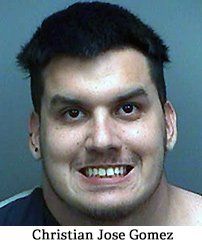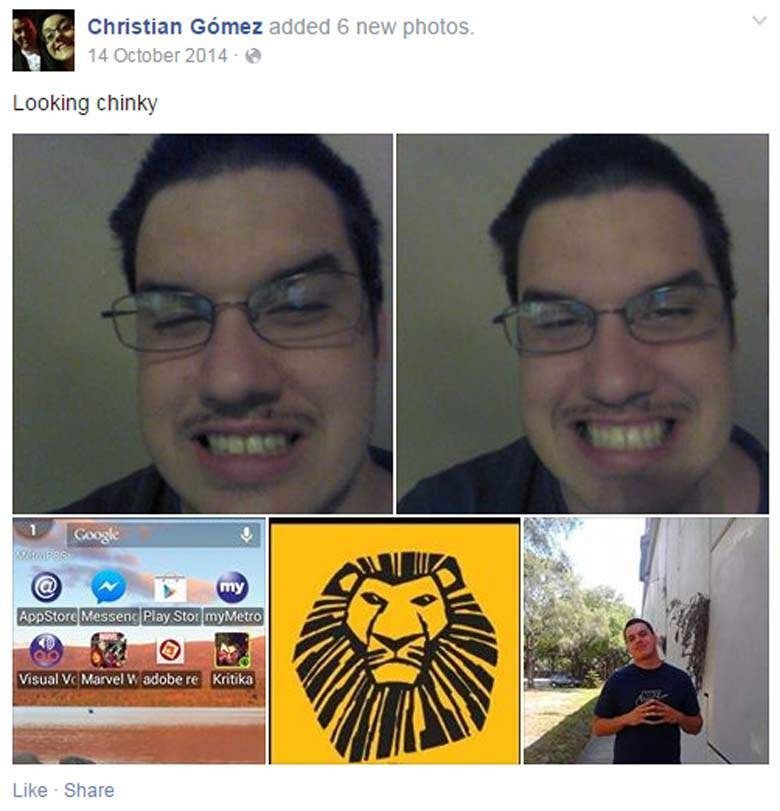The Maria Suarez-Cassagne Case and the Dire Consequences of Untreated Mental Illness
On New Year's Eve 2014, a horrific crime shook the quiet community of Oldsmar, Florida. Maria Suarez-Cassagne, a 48-year-old single mother, was brutally murdered in her own home. The perpetrator was her 23-year-old son, Christian Gomez, who was subsequently charged with first-degree murder. This tragic incident serves as a stark reminder of the devastating consequences that can arise when severe mental illness intersects with crime.
Maria Suarez-Cassagne was a devoted mother who did everything she could to help her son, Christian, who had been diagnosed with schizophrenia. Despite his mental health issues, Maria drove him to therapy sessions and psychiatrist's offices, and even crushed his prescribed medication, Seroquel, into his food when he refused to take it. However, her efforts were not enough to prevent the tragic incident that would unfold on the last day of 2014.
Christian Gomez was a troubled individual. His mental health had been deteriorating over the years, leading to him becoming increasingly withdrawn and paranoid. He often spent hours alone, watching TV, playing video games, or sitting outside staring at the grass and sky. He even heard voices from under his bed at night, a symptom of his schizophrenia.
On the day of the murder, Christian's older brother, Mario Gomez, was visiting from Virginia. The family had gathered for dinner, after which Maria dropped her daughter, Maria Jose, off at work. When she returned home, she agreed to help Christian bring down boxes from the attic to store holiday decorations. This was when Christian attacked his mother in the garage with an ax, severing her head. He then dragged her remains from the garage to the garbage cans outside their home.
Mario Gomez discovered the gruesome scene when he noticed the house was too quiet and went to investigate. He found a puddle of blood in the garage and his mother's headless body outside the house. Christian was nowhere to be found.
The investigation into the murder was swift and thorough. Mario Gomez had called 911 to report the murder, telling dispatchers that his brother had killed their mother and decapitated her. When deputies arrived at the scene, they found Maria's body near the garbage cans outside the family home. Mario informed the deputies that Christian had left the scene.
Deputies immediately set up a perimeter in the area to search for Christian. A tip from another caller about a suspicious person riding a bicycle in the area led them to Christian. He was spotted riding a bike near 1802 Driftwood Circle, a few blocks away from the family home. When deputies attempted to stop him, a brief foot chase ensued, and Christian was eventually taken into custody.
During the interviews with detectives, Christian admitted to the murder. The murder weapon, an axe, was also recovered. Christian was charged with first-degree murder and was held in the Pinellas County Jail.
The investigation revealed that Maria died as a result of blunt force trauma. The swift response and thorough investigation by the Pinellas County Sheriff's Office led to the quick apprehension of Christian Gomez and the resolution of this tragic case.
The murder of Maria Suarez-Cassagne serves as a stark reminder of the devastating impact of severe mental illness when left untreated. Despite Maria's efforts to get help for her son, the mental health system failed to provide the necessary long-term treatment for Christian. The family's tragedy underscores the urgent need for comprehensive mental health care and support for families dealing with severe mental illness.





